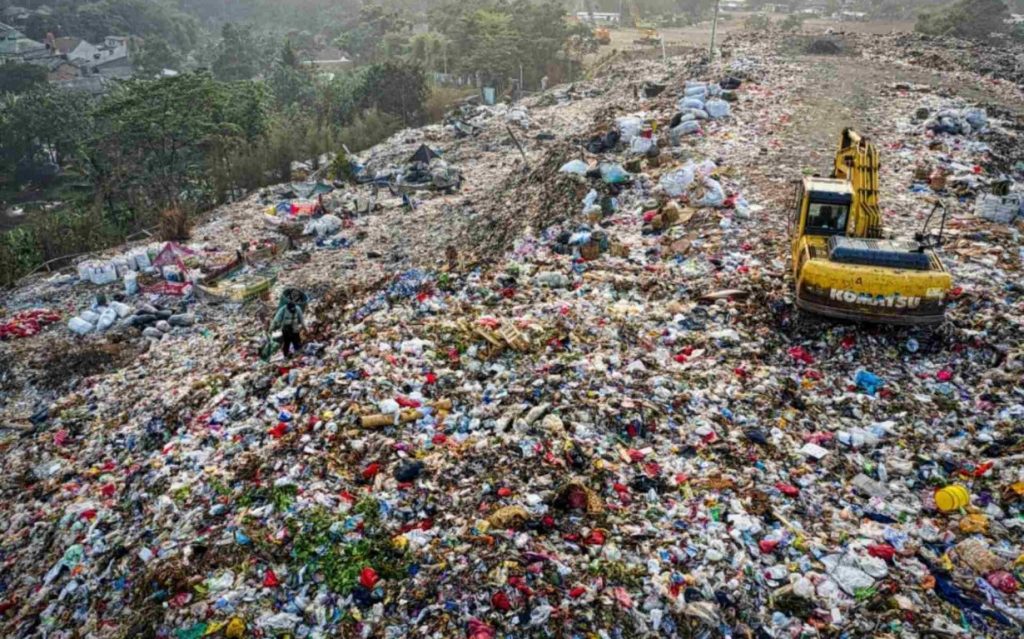
COVID-19 And Beyond: Solid Waste Management, Sustainability And Circular Economy
The global spread of COVID-19 pandemic and limitations on commercial activities, mobility and manufacturing sectors have significantly affected the waste management sector. Waste management is critical to human development and health outcomes, especially during the COVID-19 pandemic.
COVID-19 has exposed the world to several environmental threats including plastic pollution-attributable to unsustainable use of single-use plastics.
COVID-19 & The Waste Scenario In Mumbai
Waste segregation and segregated waste collection has been an issue till date in most Indian cities. Mumbai, the financial capital of India is one such metropolitan city harshly affected by COVID-19 in terms of mortality rates and waste generation. Hence, there is an immediate need for capacity building and guidance to manage municipal solid waste, especially medical and other hazardous waste.
According to CPCB, daily bio-medical waste generation in India has gone up by 25 per cent in 2020 due to COVID-19.
Earth5R’s Flagship project “Solid Waste Management and Circular Economy for Livelihood Training” is currently being implemented with highly participatory group work and question-centred training to impart zero waste strategies at community level in COVID-19 scenario. This training engages the local slum communities of Mumbai in meaningful practices that are locally relevant and can be collaboratively implemented by the communities themselves.
COVID-19 & Earth5R’S Community-Led Waste Management Model
Local communities can become the foundation of a resilient,streamlined, efficient waste-management system, especially relevant in COVID-19 times.
For that matter, Earth5R citizen volunteers actively engage the slum dwellers of Mumbai to collect and segregate the waste at source into wet/kitchen waste, dry waste (recyclable/non-recyclable), sanitary waste, e-waste and hazardous waste. The practicability of 3R’s of waste management practices are another focus of this training. This not only reduces the risk of cross-contamination but also ensures more environment friendly waste disposal.
Till now, around 5000 families have been trained in the typical slum areas of Mumbai like Kurla, Vikhroli, Aarey Colony, Dharavi, Chembur, Sakinaka, Ghatkopar, Mahim etc.
BENEFITS
- Reduces burden on the waste management infrastructure.
- Increases the efficiency of the system.
- Fosters ownership and a sense of collective responsibility over waste.
- Empowers the locals to tackle their own waste.
COVID-19 & Circular Economy For Livelihood Skills: A Paradigm Shift In How Waste Is Viewed
The coronavirus pandemic has badly damaged economies across the world. Could an increased move towards a “circular economy” model aid the recovery?
According to the United Nations International Development Organization (UNIDO), a circular economy is ‘a new way of creating value and ultimately prosperity.’
A circular economy works by extending product lifespan through improved design and servicing, and relocating waste from the end of the supply chain to the beginning – in effect, using resources more efficiently by using them over and over.
Ensuring that waste is subjected to (in order of priority) : reduction of waste and maximum recycling and resource recovery from the material that is thrown away, Earth5R has also prioritized a sustainable economic recovery during COVID-19 by investing in a circular economy model for livelihood skills.
The citizens, especially local women are trained practically in composting, upcycling of plastics, old clothes, newspapers etc. It not only leads to improvements in environmental conditions but also improves the livelihoods and social positions of communities. This, in turn, makes their community a more just, inclusive and resilient one overall.
The Way Forward: Challenges & Opportunities
While the pandemic COVID-19 has highlighted the vulnerabilities of India’s waste management efforts, it has also provided an opportunity to construct a more resilient waste ecosystem and brought together the different stakeholders to address the twin challenges of waste management and COVID-19.
Social responsibility, corporate action, and government policy are vital for change and to achieve sustainability.
In such adverse conditions of COVID-19, Earth5R’s training proves to be a good example of a practice that supports the case for increased community participation and focus on the environment-health-economic nexus: a trilemma that has a potential trade-off.
ABOUT EARTH5R
Earth5R is an environmental organization from India with its head office in Mumbai. It works with the NGO sector, Companies and helps them conduct environmental Corporate Social Responsibility (CSR) programs across India.
Earth5R specializes in circular economy based projects. Earth5R also offers short term and long term environmental courses and fellowships.
–Reported by Trisha Garg



